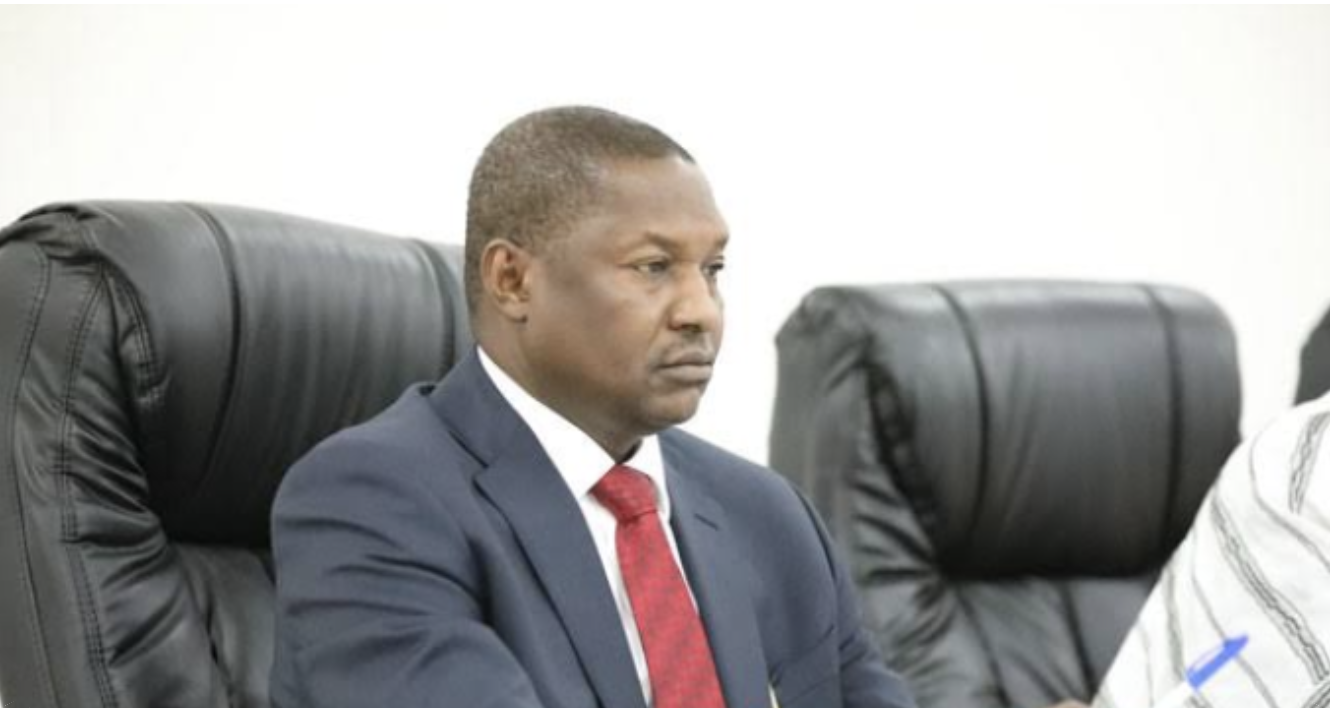News
Report: FG seeks law to strip EFCC chairman of powers to run agency

The federal government is reportedly working on a new bill that will strip the chairman of the Economic and Financial Crimes Commission (EFCC) of the powers to run the agency’s daily operations.
The new bill creates the office of the director-general of the commission who will oversee the daily affairs of the agency.
It comes amid the controversy trailing the commission following the suspension of Ibrahim Magu as acting chairman over allegations of corruption.
Magu was suspended alongside top directors of the EFCC.
According to the PUNCH, Abubakar Malami, attorney-general of the federation (AGF), is putting together the new bill that would repeal the EFCC Act of 2004 for onward transmission to the national assembly.
The proposed law also empowers the AGF to revoke the prosecution power of the commission in cases where it fails to meet certain requirements.
The existing EFCC Act only recognises the attorney-general’s power to institute, continue, takeover or discontinue criminal proceedings against any person in any court of law as provided by section 174 of the 1999 constitution.
But in the new bill, the AGF has the authority to revoke the prosecution power of the EFCC where it fails to hand over requested prosecution files or provide returns of all cases it handled annually or at any other interval.
It states that where the commission fails to do this, “the Attorney General may, subject to prevailing circumstances, revoke the power to prosecute from the commission”.
The proposed law states that the EFCC chairman shall be the head of the commission’s board which is responsible for establishing policy guidelines for the commission, oversee its performance in accordance with the provisions of the new Act among other powers.
It also states that both the EFCC DG and the chairman shall be appointed by the president, upon recommendation by the AGF, and subject to confirmation by the senate.
But unlike the EFCC Act of 2004 which states that the EFCC chairman must be a serving or retired member of any government security or law enforcement agency not below the rank of assistant?commissioner of police or its equivalent, the proposed law extends such privilege to private individuals.
Section 8 of the bill reads: “Subject to the provisions of subsection (3) of this section, the Director-General shall be a retired or serving member of any government institution, including any security or law enforcement agency not below the rank of a director or its equivalent or a person from the private sector”.
-
Society News3 years ago
Jamaican man beheads wife after finding out their 6 kids are not his
-
Society News5 years ago
EXCLUSIVE: The Complete Story of Dolapo Awosika, John Fashanu and Prophet Kasali Sex Mess
-
News2 years ago
Breaking: Ex-Police IG, Tafa Balogun Dies
-
News4 years ago
Pastor Osagie Ize-Iyamu, His Membership Of Secret Cult, And Other Issues Touching On His Public Credentials Examined by Barr. PATRICK I. BIOSE
-
News4 years ago
BREAKING: Ajimobi’s daughter-in-law blast Gov. Makinde, says gov can’t surpass ex-Oyo gov
-
News4 years ago
BREAKING: 2 arrested as NAF begins investigations into Tolulope’s death
-
News4 years ago
BREAKING: Police take over Edo House of Assembly as APC, Oshiomhole move to seize control
-
Crime4 years ago
Exclusive: Female Aide Fingered In Oko Oloyun’s Murder + Banking Transactions That Nailed Husband
Notice: Undefined variable: user_ID in /var/www/first2023/wp-content/themes/firstweekly/comments.php on line 48
You must be logged in to post a comment Login